Nexus 6 is amazing [Review]
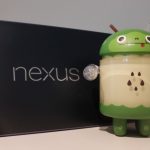
When isn't a cell phone too big? The Motorola-made, Google-branded phablet answers that question for me, and may very well for you. From Samsung's introduction of the original Note, I scoffed at large-screen smartphones—and, honestly, the seemingly stereotypical gadget geeks using them. But big is better, and my arrogant attitude about phablets and the people buying them was unwarranted.
Simply stated: Nexus 6 is the best handset I have ever used. The experience is so fresh and delightful, the emotional reaction reminds of using the original iPhone that I purchased on launch day in June 2007. N6 shatters my negative preconception about phablets, particularly unwieldiness when used daily. That said, I made some lifestyle changes, including choice of clothing, to accommodate the mobile's massive size.
Google responds to Apple Watch

The newest Android "be together. not the same." commercial posted to YouTube today ahead of Apple's big smartwatch launch. The video series focuses on individuality and choice, which packs a little more punch for a wearable where one size likely won't fit all.
I like the background music, "On the Regular" by SHAMIR, in an advert by every measure focused on Apple Watch's presumed young and hipster crowd. You can be square, round, or whatever you want with Android Wear.
I was wrong about the smartwatch being a dumb idea
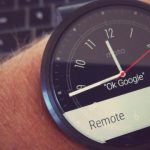
Over the holiday weekend, I started using the Moto 360, which user experience is way better than anticipated. For all the nutcases calling Apple Watch innovative and revolutionary—without there even being a device for them to test—Android Wear is, ah, timely. Google gives great utility that will be difficult for the fruit-logo company to match. Reasons are simple: Context, search, sync, UI design, and Google Now.
I resisted the smartwatch concept for having been there before. Few of the gadget geeks gushing about wearables are old enough to remember Microsoft SPOT. Mid-last decade, the company partnered with real watchmakers (Fossil, Suunto, and Swatch); the devices were as much jewelry as functional timepieces; FM radio delivered appointments, news, weather, and other alerts independent of cell phones; and battery life lasted three days or more (which wasn't enough). By these measures, SPOT watches were so much more and still failed. Hence, these are reasons why in past analyses I called the decade-later attempt dumb. But I was wrong.
Android platform partners should think differently, or fail

Outside Apple Store, people excitedly line up to buy iPhone 6. The crowd is remarkably eclectic. Tattoos here. Mohawk there. Someone wearing a prim business suit chats with a burly biker wearing sleeveless T-Shirt. Everyone's clothes beam bright, vibrant colors. Loud laughter and uproarious chatter is everywhere. This is one happy group of buyers.
The store's doors exit onto a green pasture of sheep. Each wears a chain around its neck, with iPhone 6 attached. Cow bells appear on the screens, and clanging sounds against the chirping of birds. One animal looks up: "Baaaaaaa!" Then another, and another. An announcer asks: "Do you really want to be an iSheep?" Then the Android logo and robot flash across the screen.
Apple is boring
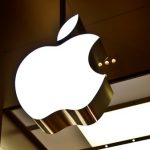
Perhaps you have seen such statement somewhere on the InterWebs sometime during the last couple of months and increasingly the past few weeks. It's a meme slowly growing -- and for good reasons. While others innovate, Apple iterates and succeeds unblushingly well. The company is mountains more successful today innovating less and taking fewer risks.
Apple is the new Microsoft, where maximizing margins matters more than innovation. Look how much more successful Apple is by being boring and following where innovators lead. Consider today's Strategy Analytics report that puts Apple and Samsung tied for calendar fourth-quarter smartphone shipments. Such scenario was all but unfathomable two quarters earlier. Yet the foundation laid long before Apple cofounder Steve Job's death, when logistics genius and now CEO Tim Cook managed day-to-day operations. Risk-to-innovation defined Jobs' management style. Cook is more tactical.
How many iPhones did Apple REALLY sell?

The official number for calendar Q4 2014 (fiscal Q1 2015), ending December 27, is 74.688 million. Got to admit, that sure looks like a rather large number of iPhones. But how big is it? Really? Apple sold in the one quarter more iPhones than during fiscal years 2007-10 (73.946 million) combined, or twice as many as sold (37.044 million) during the same three months in 2012.
On its own, iPhone generated more revenue, $51.182 billion, than all of Apple in any quarter in fiscal 2012 and, singly, three of the four quarters in each of FY 2013 and 2014. The amount also exceeds every fiscal year through 2009, which revenue was $42.905 billion.
If Samsung stumbles, will Android fall down?

The world's largest smartphone manufacturer is troubled. Overnight, Samsung warned that its third-quarter operating profit could fall as much as 61.8 percent because of weakness in its largest division, mobile, from which phones account for about 60 percent of company profits. Smartphone shipments are up slightly, but the money they generate is down substantially.
For Google, the news is a mixed blessing. In April 2012, I warned that "Google has lost control of Android" -- Samsung's dominance with customized versions of the mobile operating system being major reason. Big G effectively responded by separating core apps and services from Android, spreading them out across versions, and better unifying the user experience. Still, Samsung's TouchWiz UI is the main way tens of millions of people experience Android every day. The South Korean company's problems could eventually be good for Google, but will they benefit Android or pull it down?
While you watch Apple, the Android Army marches forward

As the American tech press turns to San Francisco and Apple's developer conference, the real world looks to Taipei and Computex. There you see the Android Army's march against iOS. ASUS announces new Android tabs, HP takes the wraps off a laptop running the operating system, and Samsung serves up a phablet so large it crosses category boundaries. In literature, they would call this foreshadowing. Do you see how this story will unfold -- as Android manufacturers and Apple engage like factions from the Divergent series.
Android accounted for 39.7 percent of device shipments -- hybrids, PCs, phones, and tablets -- during 2013, according to Gartner. Apple's iOS and OS X: 10.4 percent. Forecast for this year puts Android at 47.2 percent and the fruit-logo platforms at 11.5 percent. That's context for today's announcements from the East and West. As I write, Apple's announcements dribble (iOS 8 and OS X 10.10) out of Worldwide Developer Conference 2014, so this post focuses on what the Android news means.
Google Camera goads iPhone

Android phones running stock or manufacturer-installed KitKat 4.4+ get a big photo-shooting upgrade today. Google Camera is now available from the Play store. The app replaces the standard shooter on Nexus devices and places a separate camera app on others. The headline feature: Lens Blur, which does exactly what the name indicates. You shoot the image, and then use the app to either blur the foreground or background. Photographers call the capability "bokeh", and it usually requires a specialized lens on dedicated hardware to produce well. The blurred effect is highly desirable for portraits. Can you say selfie?
Google does what Apple should -- use software development wits to add hardware smarts. This is exactly the kind of thing I would expect from the fruit-logo company first. But that's a number recently missing from the iOS crop. Google is by no means first to offer software blur, but in my testing delivers arguably the best effort. Hell, the new camera app even shames newfangled hardware mechanisms. HTC One M8 uses two lenses and feature UFocus to produce bokeh. In my testing, on The One and Nexus 7, blur is surprisingly comparable.
1 billion smartphones ship in 2013, Android and iOS still dominate

According to figures released by International Data Corporation (IDC), 2013 was the year that smartphones really took off -- a staggering 1 billion units shipped. As has been the case for some time, it is Android and iOS that continue to dominate, with Google's mobile operating system claiming a 78.1 percent market share, and Apple's 17.6 percent. As has been the norm, Windows Phone found itself in third place, although it did manage to increase its market share to 3 percent.
The figures are based on shipments in the fourth quarter of 2013, and when compared to the same period in 2012, Android and Windows Phone both made gains while iOS lost some of its market share. Jumping from 70.3 percent of the market in 2012, Android's growth was impressive, while iOS dropped 3.3 percentage points from 20.9 percent. Looked at in terms of percentage points, Windows Phone's jump from 2.6 to 3.0 percent of the market, it still represents an improvement of more than 13 percent.
New infographic reveals the top gadgets and tech of 2013

We’re a week into the New Year, a time to look to the future, and all the news flooding out of CES has us excited for what’s coming up. But that’s not to say we can’t still take some time to look back on 2013 -- a year that brought us some great (and not so great) tech.
FinancesOnline.com has created a new infographic summing up 2013 in tech launches and featuring the best smartphones, tablets and other gadgets. Each of the included devices has been sorted into the following categories:
iPhone 6 can challenge Android dominance in 2014 -- if Apple makes these changes

Today is the second day of 2014, so everything from last year is now obsolete (I kid, I kid). While only a few months removed from the iPhone 5s and 5c launch, it is never too early to begin dreaming about the next iteration of Apple's smartphone.
2013 was the year of Android from a market-share perspective, but its ongoing dominance isn't entirely assured. After all, it wasn't that long ago that Blackberry led the smartphone market. Google's Android isn't likely to lose market share any time soon (there are too many manufacturers and models for that to happen) but I do think there's a chance for Apple to win big this year. Though I am an Android user, I am not opposed to switching to the iPhone 6 or iPhone Air (or whatever Apple calls it) and I think other Android users could feel the same way -- if Apple makes the following changes.
iPad mini with Retina display sees Apple preaching to the converted
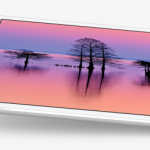
Five words, 25 letters, all indicating the latest addition to Apple's growing iPad family. Let's try to skirt over the name that extends to almost Tolstoyan lengths before we get too bogged down in it. But it does bear mentioning that this is a name no one is going to use; this is the iPad mini, perhaps the 'new' iPad mini to help differentiate from its predecessor. However it's not just the official title that's big… there's that price tag too.
While the price is not a new revelation -- we knew about it when the new iPad mini was announced a few weeks back -- now that the latest model is actually available to purchase, it seems a good time to reassess it. Head over to the Apple website and you can pick up the diminutive tablet for $399. And that's just the base price.
Apple iPad Air first-impressions review

Sometimes there is revolution in evolution. That's my surprising reaction to iPad Air, which Apple started selling on November 1. This is simply the best tablet I have ever used. Period. The fruit-logo company wisely chose to resist reinventing the wheel and build a vehicle around four instead.
For people who complain -- and there are many -- that Apple's newest 9.7-inch tab shows waning innovation, let me correct the record. You are oh-so wrong. iPad Air is an amazingly refined piece of art -- like a sculpture chiseled to perfection. iPad 3 and 4 are unpolished bricks by comparison. More importantly, anyone looking for a tablet to largely, or completely, replace a Windows PC or Mac, Air is it.
I hate to sound like an Apple apologist, but...
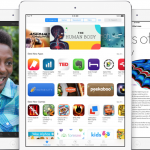
Google groupies make too much of third quarter tablet shipment estimates released yesterday. By IDC's reckoning, Apple's global share fell from 40.2 percent to 29.6 percent year over year. Meanwhile, Samsung soared from 12.4 percent to 20.4 percent share. The whole Android market grew at iPad's expense -- that's the popular contention smirked across the InterWebs. Yeah, right.
Apple apologists are quick to give the money rebuttal whenever market share tides turn against the products -- that the fruit-logo company earns more per device than rivals, sometimes all of them combined. The revenue rebuttal is exhausting for being so predictable but often also it's right and no truer than the tablet market. Q3 share numbers make lots of sense behind CEO Tim Cook's shocking decision to raise iPad mini 2 prices by $70 over the original -- that's about 22 percent. Profit share is his priority.
Recent Headlines
Most Commented Stories
BetaNews, your source for breaking tech news, reviews, and in-depth reporting since 1998.
Regional iGaming Content
© 1998-2025 BetaNews, Inc. All Rights Reserved. About Us - Privacy Policy - Cookie Policy - Sitemap.